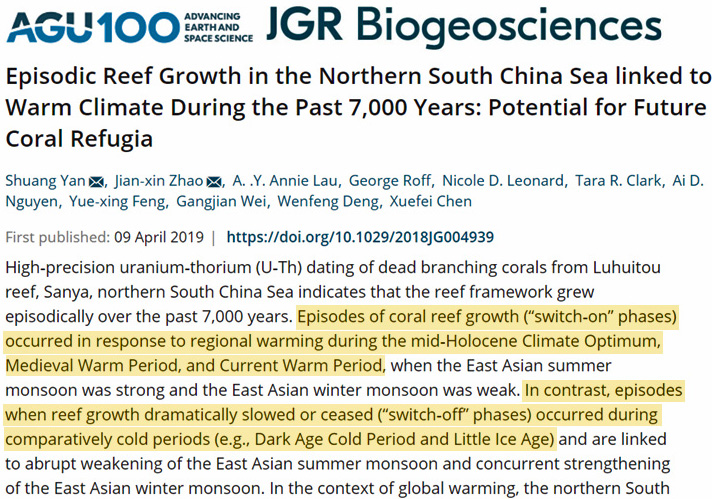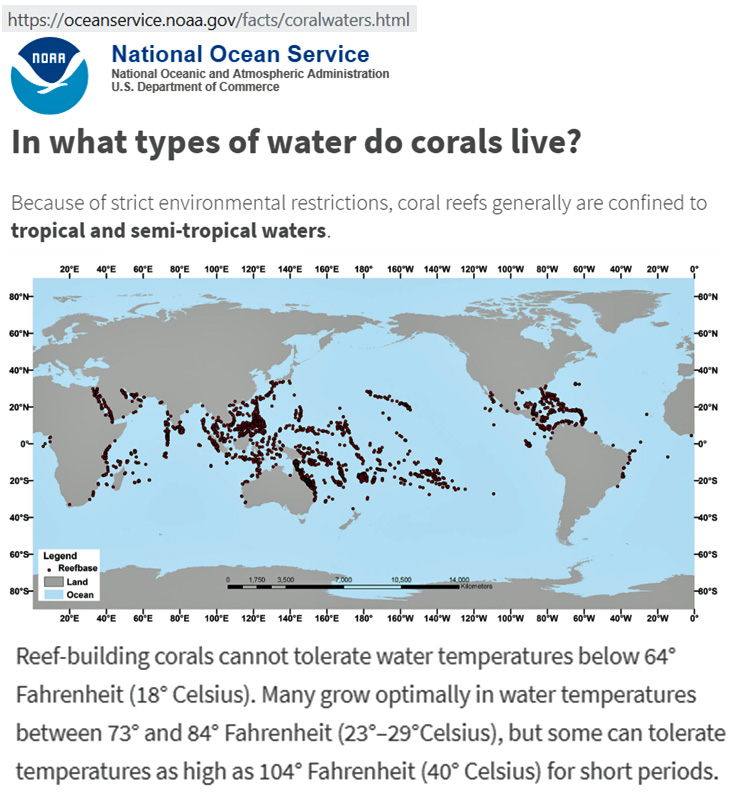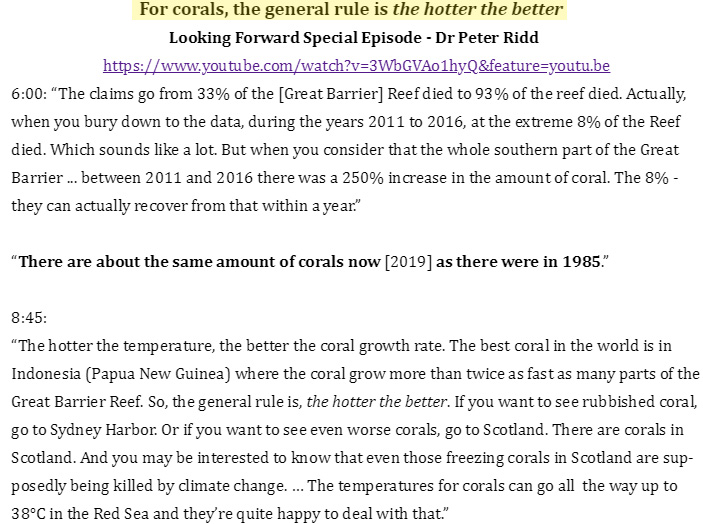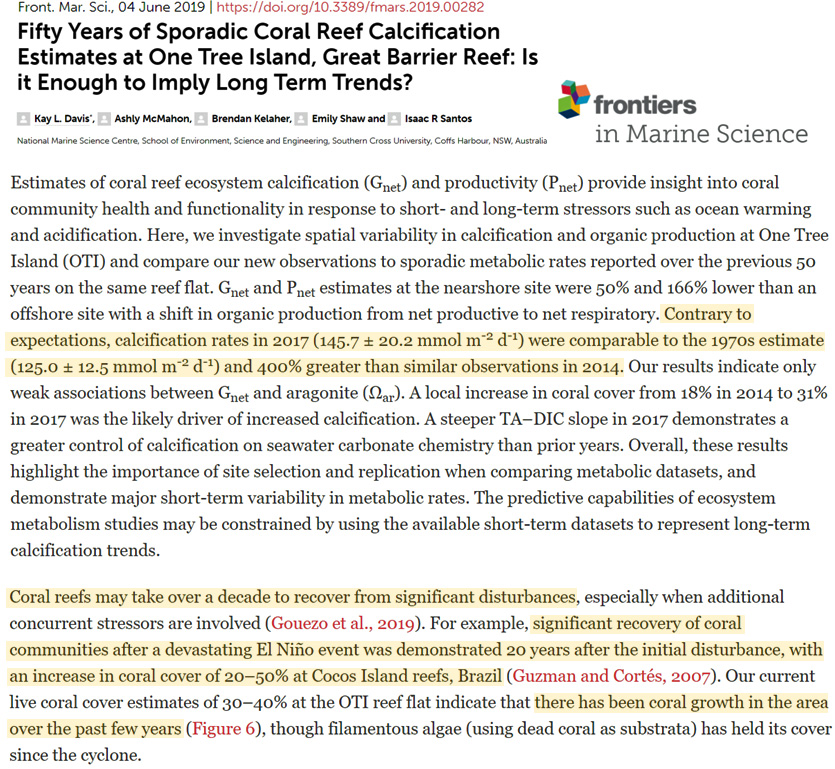A long-term (50 years) study of a Great Barrier Reef (GBR) ecoystem finds corals may quickly recover from El Niño disturbances.
According to scientists (Yan et al., 2019), coral reef ecosystems thrive in centennial-scale warming phases such as the Medieval Warm Period and Current Warm Period, whereas they experience population declines (“switch-off” episodes) during cold periods (the Little Ice Age).

Image Source: Yan et al., 2019
Indeed, corals prefer the warmest waters, which is why they predominantly live near the equator.

Image Source: NOAA
Popularized claims of a greater than 90% coral reef mortality after the 2015-’16 El Niño event are common in media circles (“93 Percent Of The Great Barrier Reef Is Practically Dead“).
Yet GBR expert Dr. Peter Ridd reports (at the 6:00 mark) that even the “extreme” estimate of reef deaths may not have exceeded 8%, and that corals “can actually recover from that within a year.”
Further, Ridd states that between 2011 and 2016, there was a 250% increase in coral cover in the southern GBR, and the abundance of corals in 2019 is no less than 1985.

In a new paper (Davis et al., 2019), scientists compare the growth (calcification) rates for corals observed in the 1970s at One Tree Island (Great Barrier Reef) to today.
Though it’s thought it may take about 9-12 years for corals to recover from El Niño disturbances (Guoezo et al., 2019), Davis and colleagues document a 400% increase in coral growth rates between 2014 and 2017, or before and after the “devastating” 2015-’16 El Niño event.
Furthermore, when comparing the 1970s to 2017, they find calcification rates were “comparable” for corals over the 50-year period.
Long-term observations would appear to offer necessary context to claims that climate change is igniting irreparable and unprecedented harm to coral ecosystems.






You appear to have missed part of the abstract of the paper by Yang et al. Is there a specific reason you left out the last part of the last sentence?
Most of the full abstract/plain language summary was excluded, including the part you’re referencing where it says “expansive coral growth occurred … when sea surface temperatures were up to 2 °C higher than present”.
“…our results suggest that expansive coral growth occurred in the mid‐Holocene when sea surface temperatures were up to 2 °C higher than present, the northern SCS may represent critical refugia for future reefs in the 21st century.”
This paper has been referenced in a previous article that goes into greater detail about the positive effects of warming/higher sea levels – and the deleterious effects of cooling/falling sea levels – on reef ecosystems.
It is clearly evident that corals thrive in warm environments. Their growth rates in warmer Indonesian waters are twice that of their growth in the cooler GBR, for example.
The Great Barrier Reef must be dead. The press reported scientists saying that within 6 months it would all be dead.
That was in 1971.
The story is regurgitated every year, about the time that Government grants are decided.
Lately one major newspaper has been reporting tourists being surprised about how wonderful it is, contrary to what they expected.
[…] https://notrickszone.com/2019/08/19/new-gbr-study-400-coral-recovery-since-2014-with-2017-growth-rat… […]
[…] https://notrickszone.com/2019/08/19/new-gbr-study-400-coral-recovery-since-2014-with-2017-growth-rat… […]
Extremely interesting info, thank you for the info you have shared. This will be a reference for all of us
Thank you for the info you have shared. This will be a reference for all of us